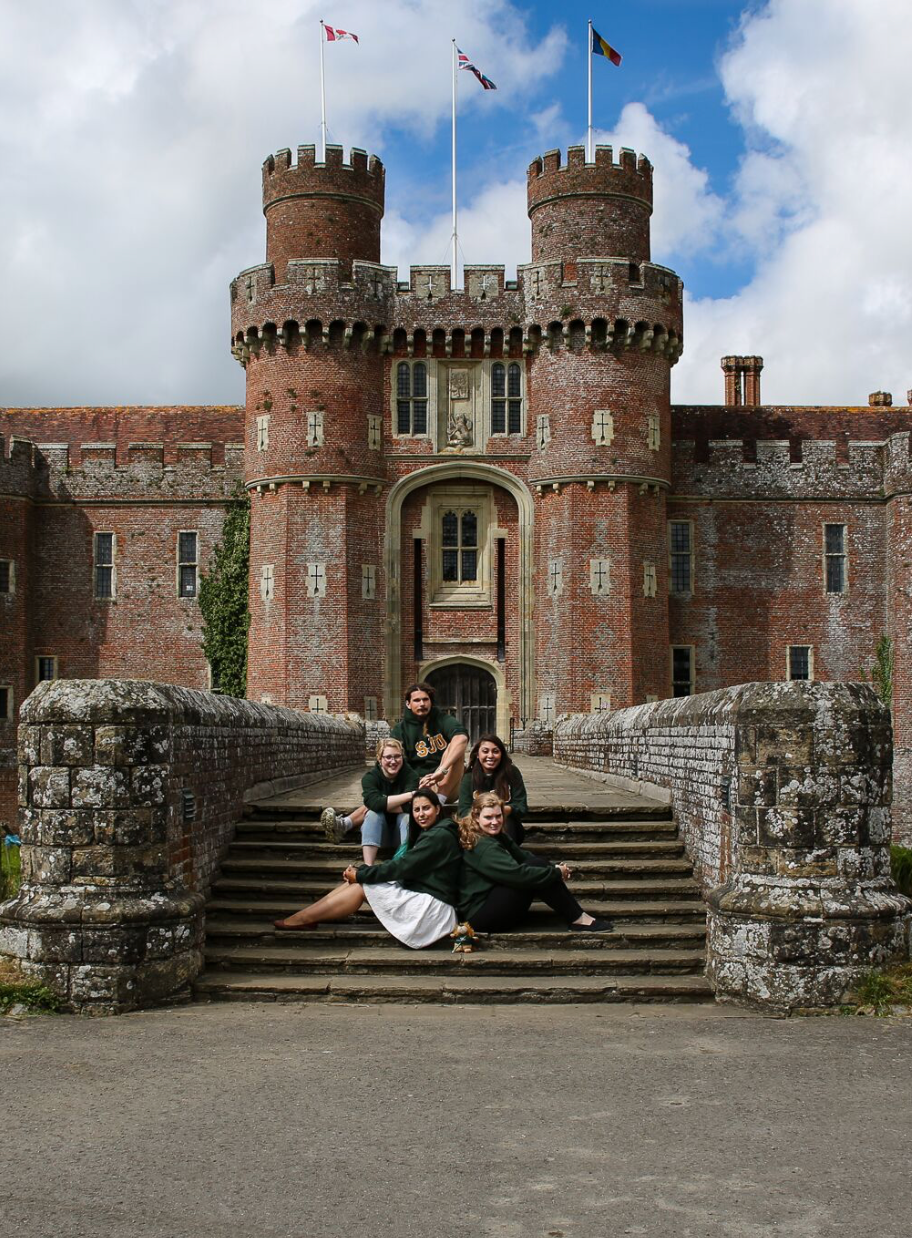Thursday, August 1, 2019
Dr.
Steven
Bednarski,
GI
faculty
member
and
Professor
of
Medieval
History
at
St.
Jerome’s
University
was
recently
awarded
a
multi-million-dollar
grant
to
support
an
interdisciplinary
project
that
illuminates
the
relationship
between
climate
and
culture
in
the
late
Middle
Ages.

Image
of
Dr.
Bednarski's
students
at
Herstmonceux
Castle from http://dragenlab.ca/herstmonceux-castle/
The
interdisciplinary
project
titled
“Environments
of
Change:
Digitizing
Nature,
History,
and
Human
Experience
in
the
Last
Medieval
Sussex”
will
last
for
7
years
and
will
explore
how
digital
technology
gives
insight
into
how
the
culture
of
the
Middle
Age
treated
climate
change.
The
researchers
will
also
investigate
if
this
relationship
can
facilitate
understanding
in
contemporary
relationships
with
climate
change.
“To represent the climate-culture symbiosis objectively we focus on another time and place of immense environmental and cultural change: southern England, 1000-1550—which coincides with the gradual end of the Medieval Climate Optimum and onset of the Little Ice Age.”
--Dr.
Steven
Bednarksi
Along
with
exploring
how
climate
change
impacted
the
past,
the
project
also
aims
to
establish
the
first
digital
humanities
lab
for
the
study
of
historical
climate
and
culture
and
will
be
known
as
the
Medieval
Digital
Research
in
Arts
and
Graphical
Environmental
Networks
Laboratory;
otherwise
called DRAGEN
Lab.
“Our novel digital media will include: an educational video game based on our archaeological and archival investigations; interactive digital maps to represent how climate and culture co-evolved; and exciting AR/VR 3D models that allow users to experience distant historical sites in their reconstructed natural contexts, online and through mobile tourism apps.”
"Environments
of
Change"
will
build
upon
an
existing
research
partnership
that
Bednarski
leads
between
the
University
of
Waterloo,
Queen’s
University,
and
the
Bader
International
Study
Centre
(BISC)
at
Herstmonceux
Castle
in
East
Sussex.
Along
with
St.
Jerome’s,
other
University
faculty
supports
include
the
Stratford
School
of
Interaction
Design
and
Business,
Arts,
Science,
Environment,
the
Office
of
Research,
Office
of
the
Provost,
and
the
Games
Institute.
GI
Executive
Director,
Dr.
Neil
Randall,
was
one
of
30
experts
involved
with
the
project.
“Together, we will produce tools to digitize sound, image, word, and provide an immersive experience to wide audiences, from school children to policy makers to scholars.”
Read
more
about
"Environments
of
Change"
in
the
full
article
by
Waterloo
Stories, here.